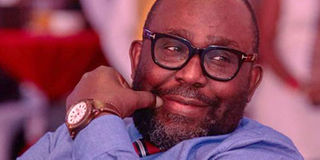US cop kills Black man with his knee and Ugandan digs in

I am fortunate to have a couple of clever friends, who travel not to sightsee, but to learn. They read non-fiction books, watch too much international TV news, and don’t miss a conference where people doing ground-breaking things are speaking.
Several of them are Ugandans. Now, there is something about Ugandans – they pay attention and are interested in regional and general geopolitical issues in ways that you don’t find in equal measure in most parts of our Africa. I have always had this suspicion that many of them aren’t even aware that they are different in that way.
There are several reasons for it, the first being that in this region, Uganda was the first post-independence “exile nation”, beginning with the 1966 troubles when the Milton Obote government attacked the Lubiri and the Buganda Kingdom, setting off a chain of refugees and exiles that has, really, never stopped. Two generations of Ugandans have now lived with part of them outside the country, and they have had to be outward-looking to connect with it.
Secondly, even counting in the short-lived Tito Okello and Bazilio Okellos, Ugandan leaders have always had an external gaze. Idi Amin, was big on liberating Palestinians from Zionists (got him in trouble with the ill-judged hostage situation that led to the humiliating 1976 Entebbe raid by Israeli commandos), and he used to stage mock military drills liberating South Africa from racism and fascism.
He derided imperialists daily. Obote was an internationalist, and President Yoweri Museveni has been loudly pan-Africanist, and has played his hand, sometimes with disastrous consequences (DR Congo), and sometimes with laudable results (Rwanda, South Sudan, Somalia, South Africa).
The result is that very many people know or have family who have been involved in these theatres and stories, and awareness about other countries’ politics and their history of struggle is nearly as mainstream as folk tales.
In Nairobi, in a week of a big story in Kampala, I will get three calls from a journalist, scholar, government official, or diplomat wanting to get background on what’s going on in Uganda. However, when there is a big event in Kenya, in a week, I will get 15 to 20 calls from Ugandans inquiring into the backstory. It has been like that for years.
When that racist cop in the US killed George Floyd, an African-American man, by choking him to death with his knees as he was pinned down on the ground with his hands handcuffed behind him, and sparked off nationwide protests that have run for almost two weeks, there were many surprising and new things.
First, how much women protest leaders have come to the fore. Secondly, the worldwide spread of the solidarity #BlackLivesMatter protests, and how much they quickly formed into a global movement against racism and police brutality, which many people in the world confront daily. And thirdly, just how many of the protestors were White; in some demos, they were the overwhelming majority. Where had this come from?
I turned to the network of my friends for their insights. They came through, and the Ugandan ones had that sweeping outward flavour I have referred. One of my Ugandan buddies, who joked that he is “an expert on American politics and racial studies”, outdid himself. I thought it would be selfish of me if I didn’t share part of his take:
“There are several ways to look at the George Floyd protests, and the fact that they are multiracial.
The generational/ideological shift that brought Barack Obama to power in 2008, and grew further under Bernie Sanders, has now reached some maturity.
“Its political and organisational maturity has coincided with the perfect cause, the same way the [Bill] Clintons were McGovern Democrats, who later came into their own with centrist globalist politics.
“But we should also look at the similarities with the anti-apartheid movement, and how it gained a critical international mass in 1984. That’s what forced the Western establishments to realise they needed to dump the [South African] Boers.
“I think [US President Donald] Trump has been very despicable, but until now, there was no heartstrings way of taking him on that would unite Blacks and Whites, and shame some of his base. I think this protest is more a rejection of Trump, his racial politics, and his handling of Covid-19. A combination of these and other factors have made this a perfectly multiracial rejection of bigotry and prejudice. It reintroduces idealism in public life on a scale of the civil rights and anti-apartheid movements.
“It is interesting, that George Floyd’s killing has galvanised the public in a way that causes like climate change, gender quality, or even the war on terror just couldn’t.” I expect we will have a furious debate on that last bit. But that is your Uganda, with the cobweb of Covid-19 lockdown, all still weighing him down.
Mr Onyango-Obbo is a journalist,
writer and curator of the “Wall of Great Africans”. Twitter@cobbo3




